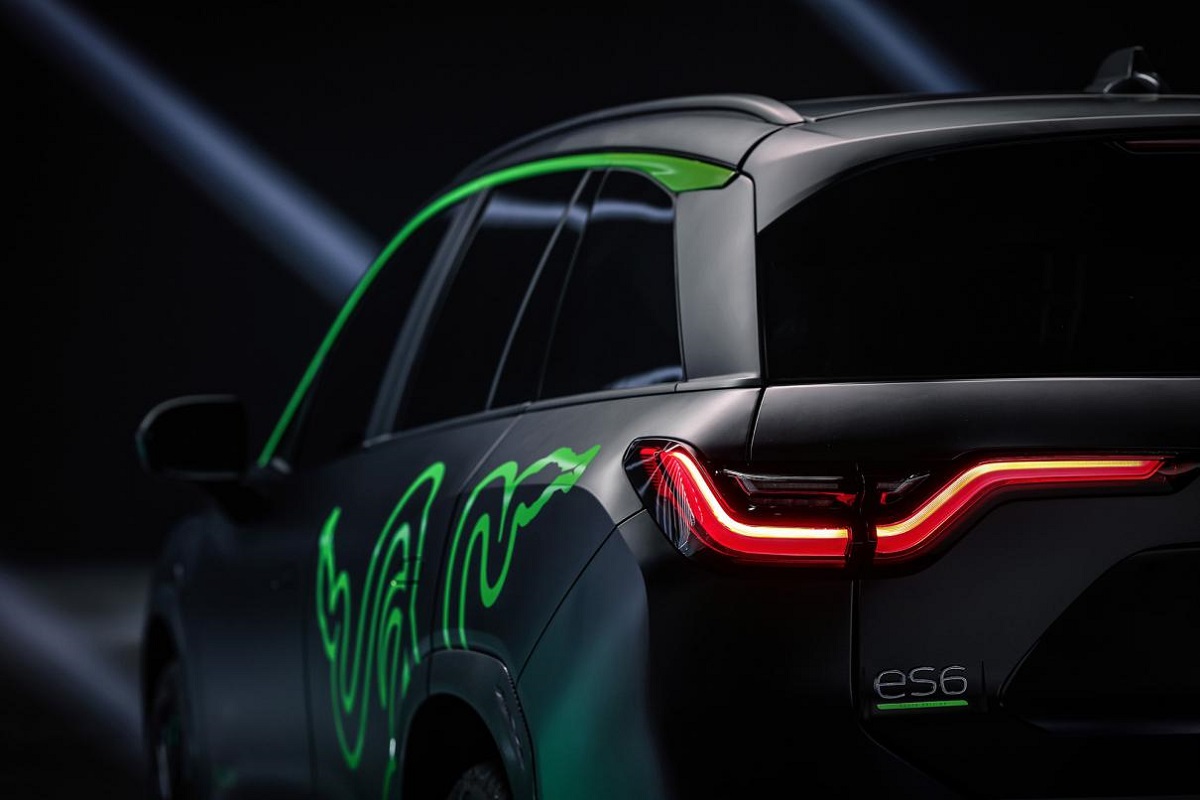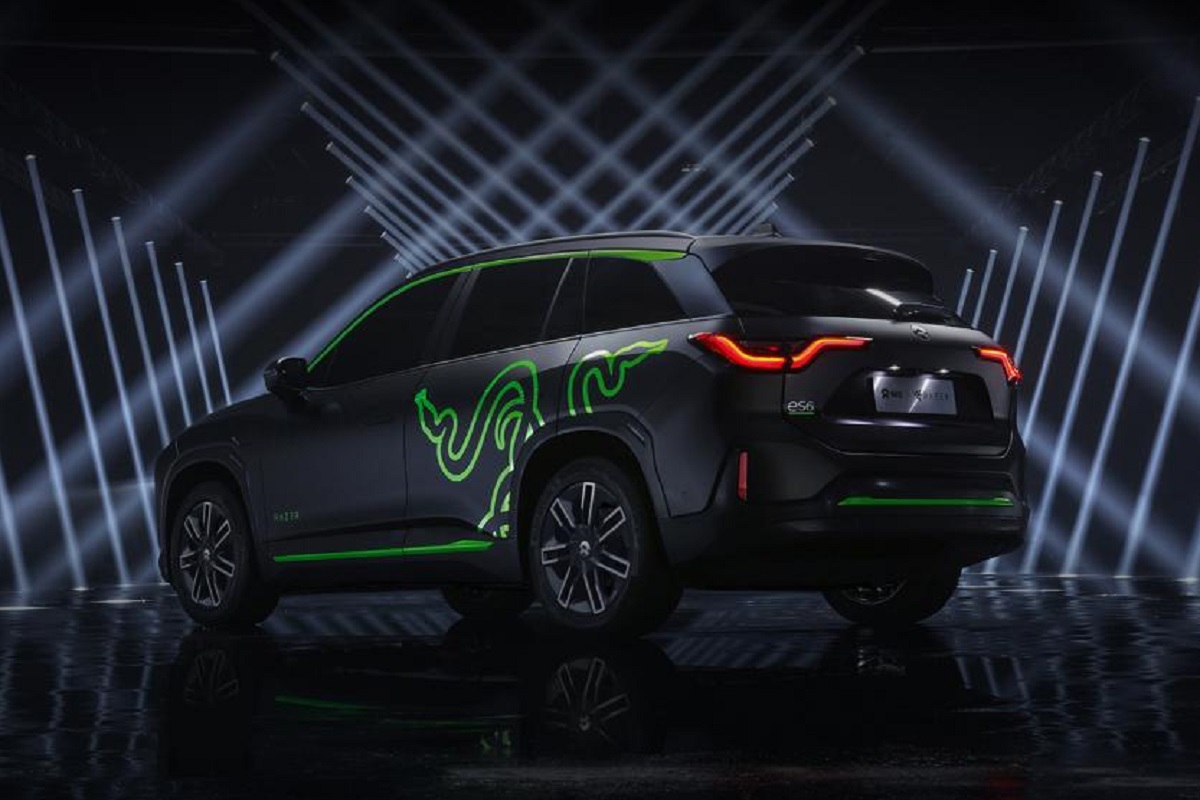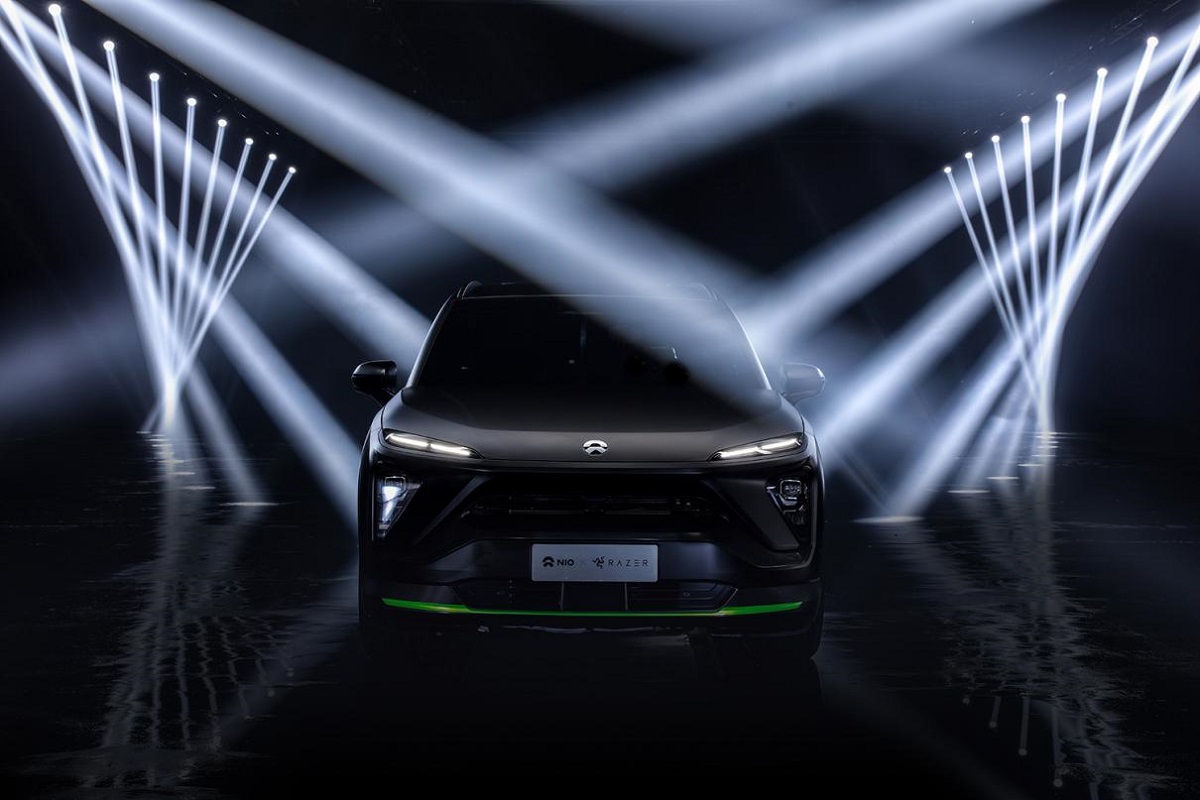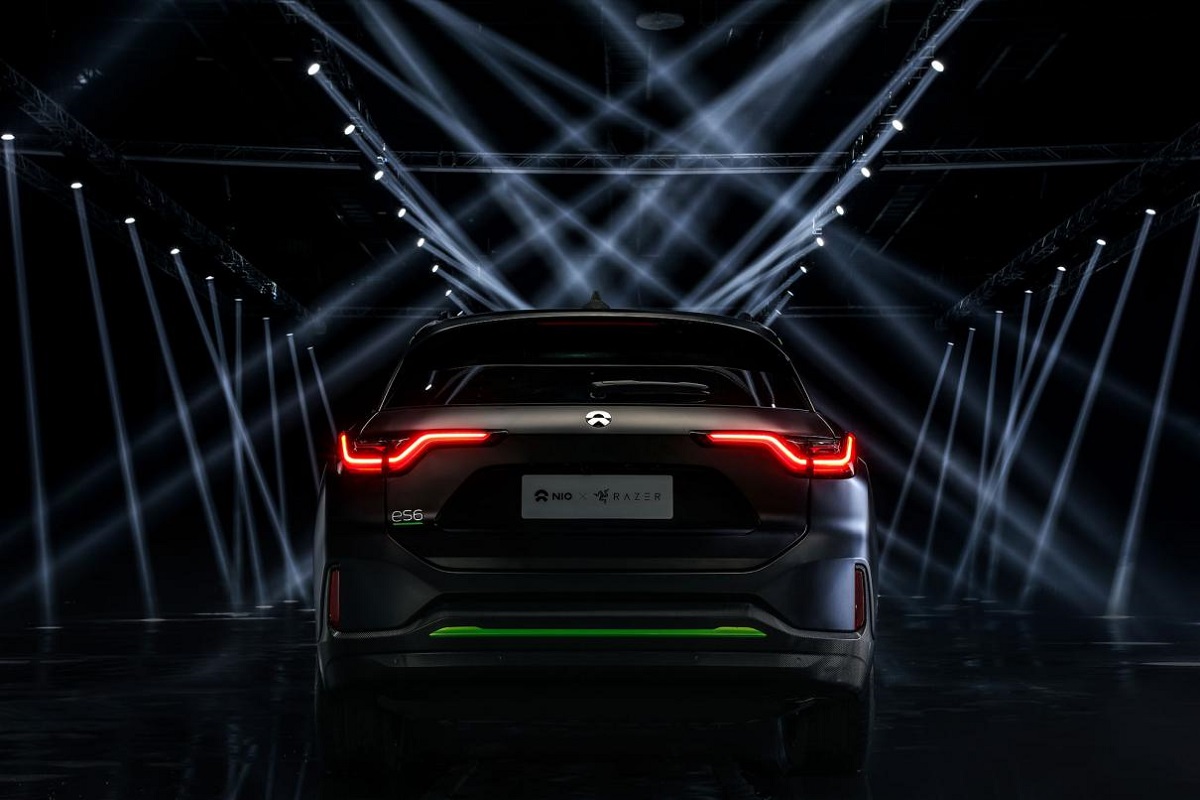Gaming accessories company Razer and electric vehicle manufacturer Nio have teamed up for a limited-edition electric SUV.
The Nio ES6 Night Explorer Limited Edition integrates Razer’s signature design into the Nio ES6 Performance Edition. The electric SUV features a maximum output of 544 horsepower, 0-100 km/h in 4.7 seconds, and a braking distance of 33.9 meters from 100-0 km/h.
The limited-edition electric SUV comes with Razer’s logo and trim, carbon fiber decals, green calipers, and a custom rear emblem. Only 88 units of the Nio ES6 Night Explorer Limited Edition will be manufactured, with sales starting in China for 467,800 yuan, or about $67,400.
The electric SUV made its debut at the 2019 ChinaJoy, the largest gaming and digital entertainment expo in Asia. At the event, it was also the official vehicle of the Razer eSports team.
The Nio ES6 Night Explorer Limited Edition is the start of a cross-platform partnership between Razer and Nio, with the two companies exploring the combination of Razer Chroma and Hue Lights, as well as THX Spatial Audio, with current automotive technologies. Gamers behind the wheel of the Nio ES6 Night Explorer Limited Edition will be able to enjoy ambient lighting effects and enhanced in-vehicle audio – at least for those who drive away with one of the electric SUVs.
The NIght Explorer is clearly meant for hardcore fans of Razer, as there are several other electric SUV options on the market. The ongoing partnership between the two companies may mean that there are more collaborations in the works, though it remains to be seen whether future products will be for U.S. customers.
The gaming accessory company’s previous forays have seen mixed results. The Razer Game Store shut down in February after less than a year, but the Razer Phone 2 is an impressive gaming-focused smartphone. The company maintains its dominance in its core business though, with the Razer Viper shaping up to be a valuable addition to its gaming mouse line-up.
Nio, meanwhile, turned heads and placed itself on the electric vehicle map when its E9 electric supercar broke the record for the quickest lap of a street-legal vehicle in Nürburgring, conquering the famous German racetrack in 6 minutes and 45.9 seconds. The record has since been broken by the Lamborghini Aventador SVJ.






